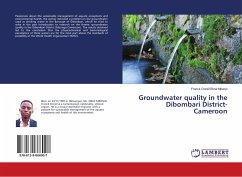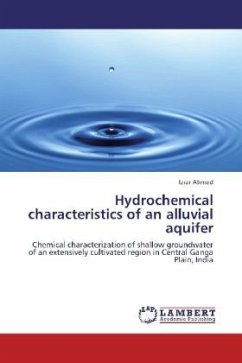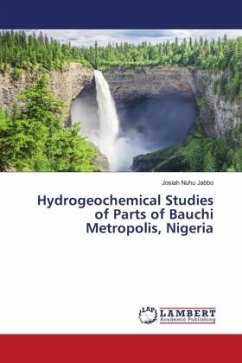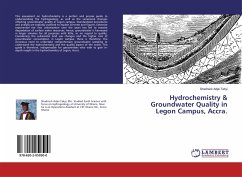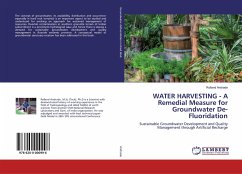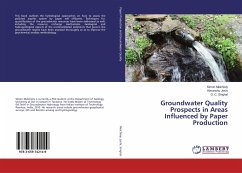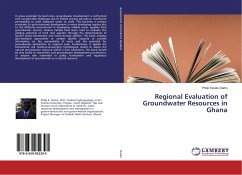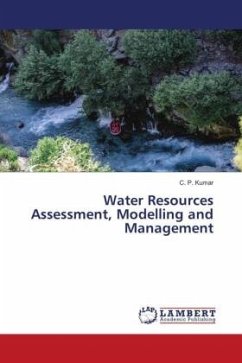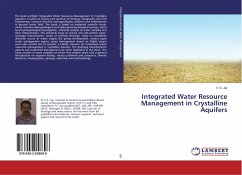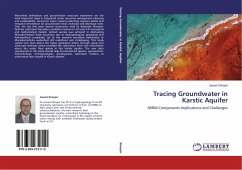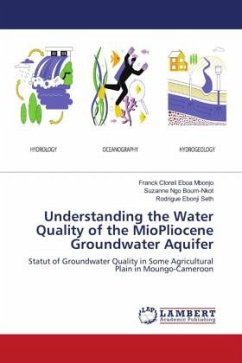
Understanding the Water Quality of the MioPliocene Groundwater Aquifer
Statut of Groundwater Quality in Some Agricultural Plain in Moungo-Cameroon
Versandkostenfrei!
Versandfertig in 6-10 Tagen
29,99 €
inkl. MwSt.

PAYBACK Punkte
15 °P sammeln!
This work is part of a series of studies carried out on the Moi-Pliocene aquifers in the vast sedimentary basin of Douala-Cameroon which is experiencing demographic pressure. The particularity of this work is that it affects a peri-urban area, the Dibombari District in the agricultural basin of the Moungo Department. This locality, subject to a gradual expansion of the city of Douala for reasons of agro-industry and housing, deserves particular attention in terms of basic infrastructure needs, among which water remains essential. The use of water for consumption in peri-urban areas, which is t...
This work is part of a series of studies carried out on the Moi-Pliocene aquifers in the vast sedimentary basin of Douala-Cameroon which is experiencing demographic pressure. The particularity of this work is that it affects a peri-urban area, the Dibombari District in the agricultural basin of the Moungo Department. This locality, subject to a gradual expansion of the city of Douala for reasons of agro-industry and housing, deserves particular attention in terms of basic infrastructure needs, among which water remains essential. The use of water for consumption in peri-urban areas, which is the main source of drinking water supply, must be subject to permanent control at the risk of causing water-borne diseases linked to its degradation. Thus, our research team carries out monitoring and evaluation missions of groundwater resources heavily exploited by the population of the Douala sedimentary basin in order to understand its hydrogeochemical dynamics to predict its vulnerabilityand preserve the health of its consumers.





